Coming off of two massive electoral wins, Doug Ford’s Progressive Conservative party seems to be strong as ever.
The Ontario NDP has a new leader for the first time in more than a decade, and the Liberal leadership race is heating up. These leaders may have a tough road ahead of them though. Recent polling has the PCs projected for 40 per cent of the popular vote and predicts the party would win another strong majority if an election was held today.
QP Briefing conducted an online survey to hear directly from those working in Ontario politics and related industries about who they believe are the best and most influential MPPs and staff at Queen's Park.The offices of all Ontario MPPs and government ministries were invited to participate.
QP Briefing subscribers were also included, expanding the audience to government and public relations professionals, stakeholders from industry and not-for-profit organizations, the Ontario Public Service, and members of the media.
The survey ran from May 1-15 and had 278 respondents. Participants self-identified as being affiliated with all political parties with representation in the legislature. Close to half stated they have over five years of experience working in Ontario politics and related industries.
Here are Ontario’s most influential ministers according to QP Briefing’s 2023 Survey.
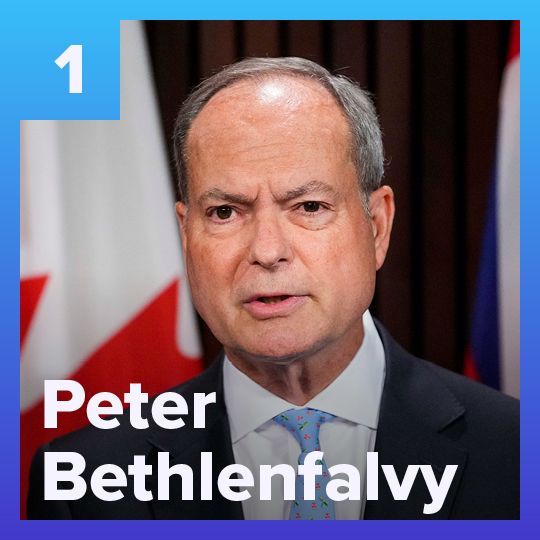
Peter Bethlenfalvy
Minister of Finance
Formerly president of the Treasury Board, Bethlenfalvy has been minister of finance since December 2020. Coming in during the post-COVID economic uncertainty, colleagues say his tenure has focused on fiscal prudence without developing a reputation as overly austere.
The third finance minister in three years, since coming to office, he’s worked to rethink government spending, hiring an outside accounting firm to review 15 years of Ontario budgeting and making government funding more efficient.
People surveyed responded well to Bethlenfalvy’s finance background, his comprehensive approach to the file and his deft balancing of public debt and provincial credit ratings.
A senior political commentator, speaking on background, said the characteristics that unite these ministers is a reputation of being personable and approachable to the public and other politicians.
“Some politicians get promoted and start to take counsel from only a small group of people,” they said. “If you ask around, all these ministers are happy to stick around and talk policy with whoever has questions.”
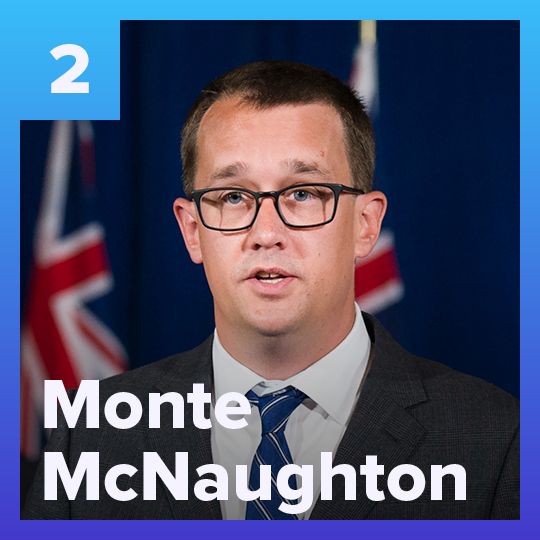
Monte McNaughton
Minister of Labour, Immigration, Training and Skills Development
Monte McNaughton has been the minister of labour since 2019 and has made great strides in convincing voters that Doug Ford’s PCs are pro-worker. Well-liked by his staff, he helped the conservatives flip traditionally progressive ridings like Essex and Windsor-Tecumseh in the last election.
“Like the portfolio that he oversees, he’s a hardworking and go-everywhere Minister,” an insider said.
McNaughton has introduced several bills to bolster labour rights and job numbers. The 2021 Working for Workers Act ensures that any business with 25 or more employees has a written policy outlining employee rights to disconnect from their job at the end of the day. It also banned non-compete clauses. The minister said that the act not only protects employment rights but attracts top-tier talent from around the world.
First elected in 2011, McNaughton should still be considered a “rising star” 12 years later.

Prabmeet Sarkaria
President of the Treasury Board
One of the most important, if overlooked, positions in the government, the Treasury Board president is essential to budgeting and passing legislation. Our survey showed that Sarkaria is well-liked by his colleagues and has done a good job approving funding for Ford’s agenda.
Described as a “small c conservative,” Sarkaria promotes fiscal responsibility and efficient governance.
A lawyer and a representative for Brampton South, he was formerly in charge of the government’s efforts at “red-tape reduction” or, in layman’s terms, removing regulatory hurdles for businesses. His work earned Ontario two A- grades from the Canadian Federation of Independent Government. This is the highest grade the province has ever received.
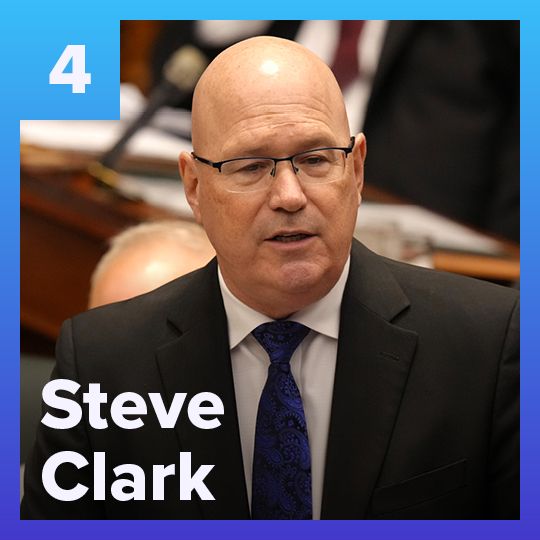
Steve Clark
Minister of Municipal Affairs and Housing
Serving as housing minister during a housing crisis can be a tough job. Clark has led the charge on controversial Green Belt development plans, saying that it’s needed to increase a flagging housing supply.
Going full steam ahead on dealing with supply, Clark was also instrumental in increasing mayoral powers in big Ontario cities. The changes allow mayors to override council decisions that interfere with increasing the city’s number of homes.

Sylvia Jones
Deputy Premier and Minister of Health
The Ministry of Health may get less attention since the height of the pandemic, but it remains one of the biggest-spending sectors in government.
Jones has been in provincial parliament since 2007 and handles health while also serving as deputy premier. The Ministry spends hundreds of millions a year. In fact, this May, Jones announced $33 million in mental health and addiction supports for Indigenous communities alone.
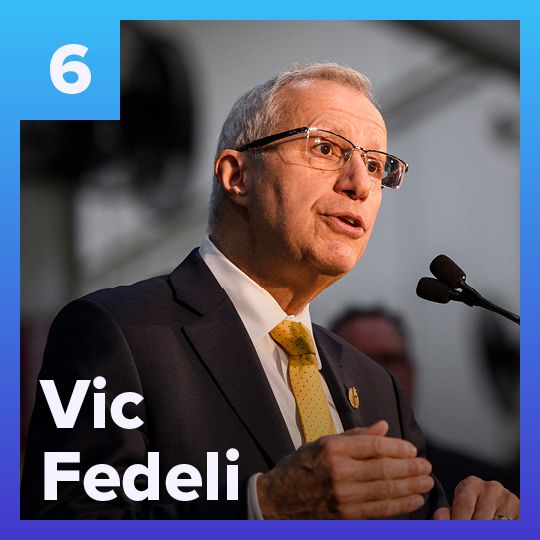
Victor Fedeli
Chair of Cabinet and Minister of Economic Development, Job Creation and Trade
Cabinet chair and economic development, job creation and trade minister, VicFedeli is heavily involved in Ontario’s automotive strategy. He’s made it clear that the Ford government wants comprehensive in-province electric vehicle (EV) production.
Fedeli and his colleagues announced in March that Volkswagen plans to build an EV battery plant in St. Thomas. The government claims that Canada and Ontario have attracted $17 billion in automaker battery investments since 2020.
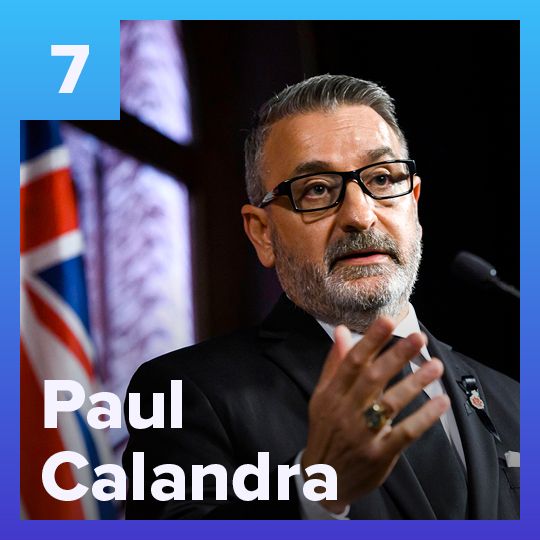
Paul Calandra
Minister of Long-term Care and Government House Leader
Few things will mark the time of the Ford government like long-term care policy. A 2021 report from the Long-term Care Commission found that the government could have prevented thousands of deaths in long-term care homes during the COVID-19 pandemic.
Calandra took over the file in January of 2022 and works in the role as well as serving as the Ontario government House leader. Since landing the job, he has upped spending on long-term care staff and announced the establishment of several new facilities across the province.

Kinga Surma
Minister of Infrastructure
The Ministry of Infrastructure oversees many of Ford’s most-important legislative projects, including transit lines and new hospitals.
Formerly the associate minister of transportation, Kinga has been Team Ford for years. She’s been involved with the Conservatives for around a decade. Recent legislative efforts include investing in rural internet, hospitals and long-term care facilities.

Stephen Lecce
Minister of Education
No stranger to headlines, Lecce has served as education minister in one of the most challenging times in recent years for the file. Commentators say that keeping schools open during the 2020-2021 school year was key to the PC’s re-election campaign.
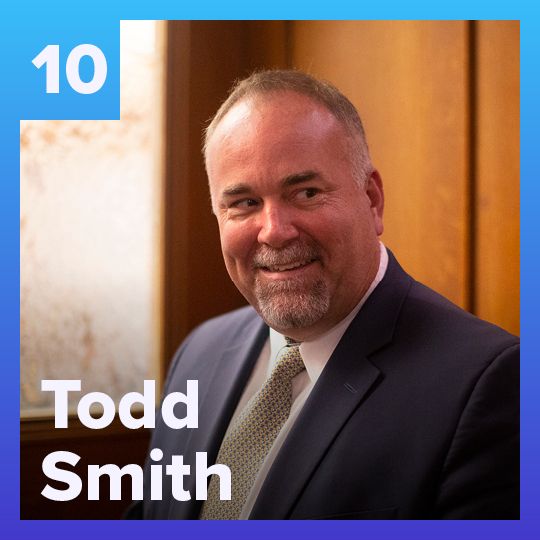
Todd Smith
Minister of Energy
Minister Smith has held four cabinet positions during his time with the Ford government. It’s indicative of the government’s confidence in him that Smith has been trusted with so many diverse portfolios, say insiders.
Recent announcements from the Energy Ministry include low overnight electricity pricing for electric vehicles and the Green Button standard, which allows consumers to track their usage of natural gas and energy.

